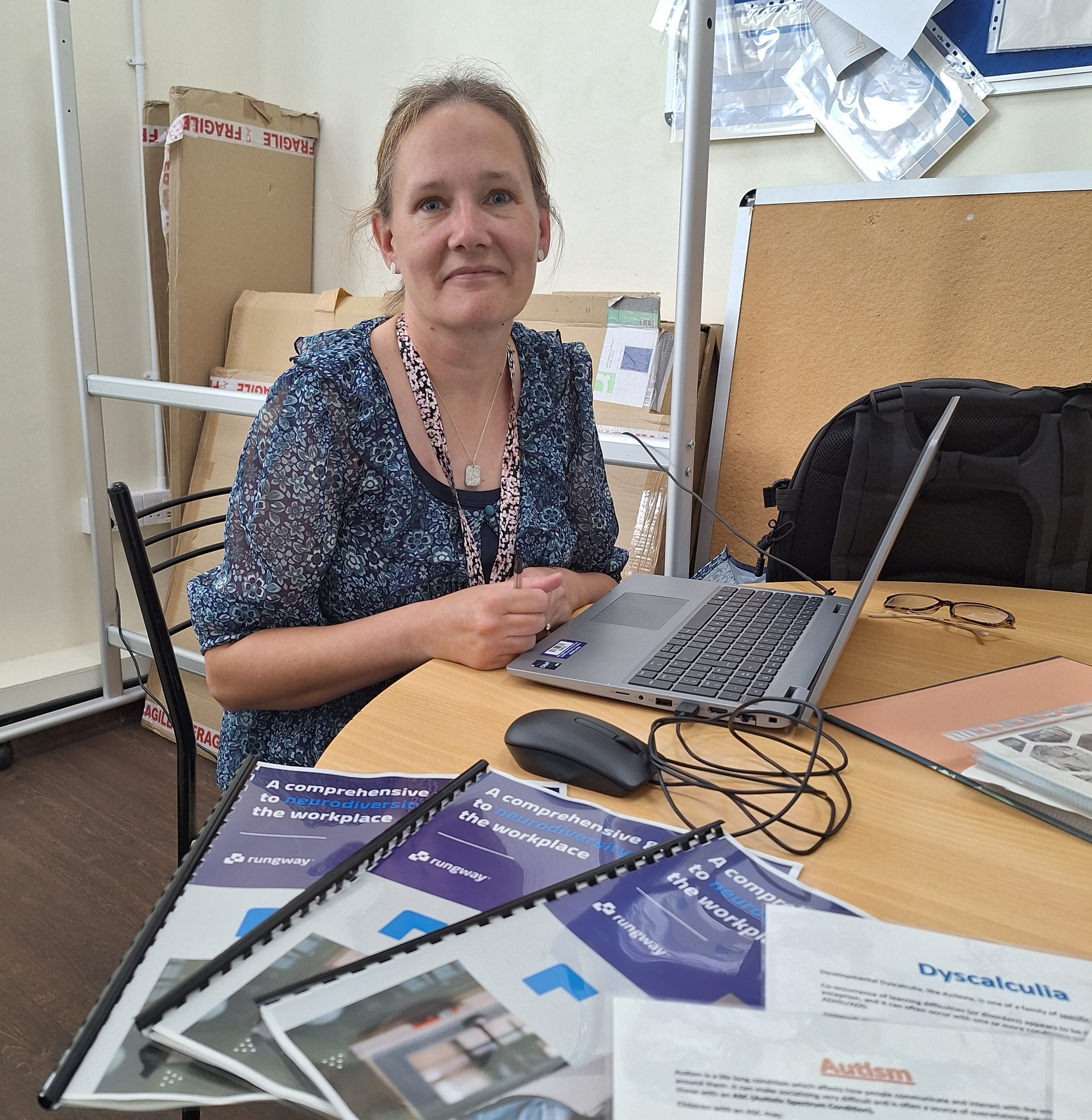
‘I never imagined I could have ADHD’
Scatterbrain, ditzy, chatterbox – those were all words Tracy Stewart used to describe herself as a child.
The admin manager for SDEC at QEQM never really felt she fitted in, and always felt different, but didn’t for a second dream it was because she was neurodivergent.
But last year, at the age of 49, she was finally diagnosed with ADHD, or attention deficit hyperactivity disorder, and finally everything made sense.
She said: “When I was a child, it was thought neurodiversity was something that only affected boys, so it was never on my radar.
“I’m not attention deficit at all – if anything, I pay too much attention to too many things at once – and my hyperactivity is internal; one sentence will spark 10 thoughts which will spark their own thoughts and suddenly it’s like being at an airport with no security or passport control and everyone rushing everywhere.
“Even when my sons were diagnosed with their own neurodivergences I didn’t consider it could affect me too.
“But then one day I saw a leaflet about menopausal women and ADHD and I actually laughed at the thought of it, and what a nightmare it would be to put those two things together. But when I read it I realised it was describing me.”
Tracy’s symptoms had been heightened by the hormonal changes of the menopause, but at one point she feared she had early-onset dementia.
She said: “There were three separate occasions, twice at the beach, and once in supermarket, where I had no idea where I was, and no recollection of how I got there.
“I didn’t recognise anything around me. It lasted for about 30 seconds each time and it was really frightening.
“But the more I read I realised other women diagnosed later had similar experiences.
“For me, the relief of the diagnosis was immense. I had done so much research before pursued a diagnosis, and I needed to know if it was just hormones or something else.
“Once I had the diagnosis confirmed it all made sense. It has been incredible to get that validation; that I might be bonkers but it’s okay.”
Tracy joined the staff neurodiversity network to be able to connect with others who had similar experiences, but also to help tackle some of the myths and stigma around ADHD.
She said: “I worry people think it is an excuse when it is an explanation. People think ADHD is boys who can’t sit still in class; they don’t think a 50-year-old mother with a full-time job and a husband could have it.
“Some people made me feel like a fraud or an attention seeker, and I think they don’t understand the damage they can do emotionally by making flippant comments like ‘just try harder’.
“To get a diagnosis, your symptoms have to disrupt your life every single day and that’s how it is for me. It is exhausting.”
A combination of medication and HRT allows Tracy to focus and concentrate more easily at work, and helps her to manage her symptoms.
She said: “I still worry I will be judged if I say I have ADHD, and that people will treat me differently than they did before they knew.
“The neurodiversity network has been invaluable in connecting me with people who understand, and it allows me to share my experiences to help others, and to support people who think they might be neurodivergent and are at the start of their journey to diagnosis.”